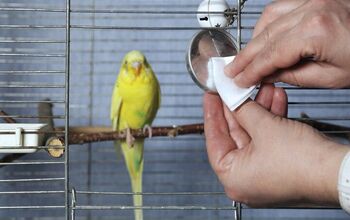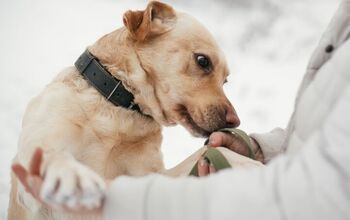Can Dogs Be Racist?

If you were to take a dog that had been raised in a white household in a predominately white neighborhood to a different part of town, you might find that he reacts in a different way to black people than to white people. But does that mean that the dog is racist? Not exactly.
Is It Possible for a Dog to Be Racist?
When you see a dog raised by a white family barking at a black person, the first thought that pops into your head may be that the dog is racist. While this may be true, to a certain degree, it doesn’t tell the whole story. The same thing could happen if a dog raised by a black family were introduced to a white person for the first time.
It can also happen in situations that do not involve race at all. Some dogs react poorly to males compared to females, or elderly people compared to young people. It is also common for dogs to be wary around people in uniforms, people in wheelchairs, or really anything that makes one person visually different from most.
But what is really happening when your dog reacts in this manner?
Your dog isn’t racist, ageist, or sexist – he just hasn’t been socialized to people who are different from the family in which he was raised. Socializing a puppy is all about exposing him to as many new things as possible during the first few months of his life when he is the most impressionable.
If you expose your puppy to as many new things as possible when he is young, he will grow up to be a confident and well-adjusted adult dog who accepts new and unfamiliar experiences with a positive, if cautious, attitude instead of abject fear.
Tips for Dealing with a Racist Dog
In order to deal with a dog who responds poorly to people of a certain race, sex, or age group you first need to identify the problem. Was there an incident that caused your dog to form a negative association with a particular type of person, or is it simply that he wasn’t exposed to a variety of people when he was a puppy?
In most cases, it is the latter. If you fail to properly socialize your puppy at a young age, he will have limited life experience. As an adult, then, he is more likely to respond to new experiences (including new people) with a degree of uncertainty, or even fear. Your dog doesn’t bark at someone with dark skin because he hates black people – he barks out of fear or anxiety because he hasn’t been exposed to someone like that before.
Just because your dog responds poorly to a certain type of people doesn’t mean that you have to avoid those people forever. It is possible to desensitize your dog – to condition him to have a positive response (or at least a neutral one) instead of a negative response. But how do you do it?
You simply have to keep exposing your dog to new and different things, giving him treats and verbal encouragement as you do so, to help him form a new, and hopefully positive association. It will also help if your dog sees you having a calm and positive reaction since dogs are able to read and respond to the emotions of their owners.
Overriding a lack of socialization in an adult dog can take time – that is why they say it is difficult to teach an old dog new tricks. Just be gentle but persistent with your dog and be generous with your praise and rewards. Over time, he will improve.

Kate Barrington is the loving owner of two cats (Bagel and Munchkin) and a noisy herd of guinea pigs. Having grown up with golden retrievers, Kate has a great deal of experience with dogs but labels herself a lover of all pets. Having received a Bachelor's degree in English, Kate has combined her love for pets and her passion for writing to create her own freelance writing business, specializing in the pet niche.
More by Kate Barrington























